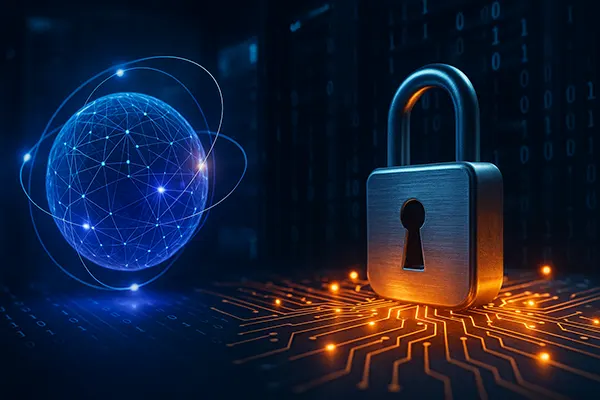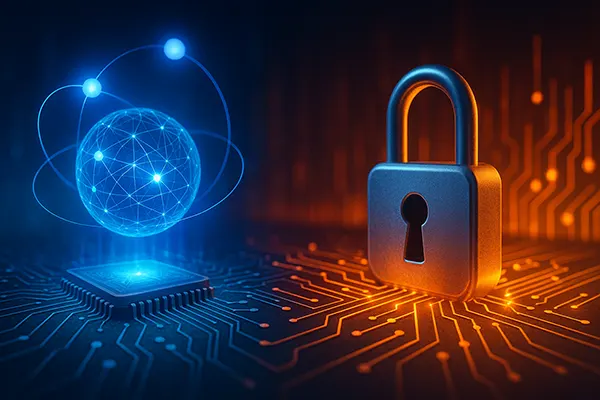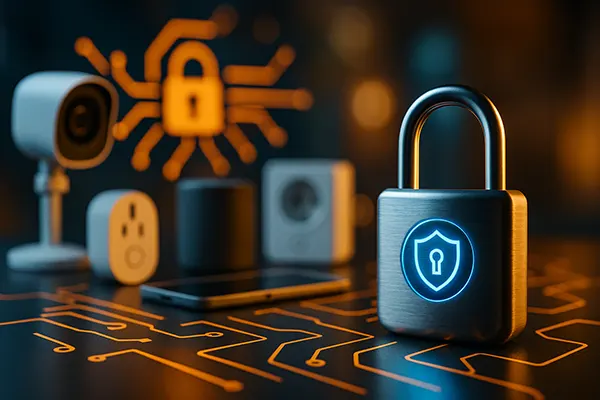
Quantum Computing and Its Potential in Cybersecurity: Hyper-Protection or Threat?
Quantum computing is no longer a futuristic dream. As of February 2025, it has evolved from theoretical models to practical applications in cryptography, logistics, and complex problem-solving. But when it comes to cybersecurity, this advancement brings a dual-edged sword—offering unprecedented levels of protection while simultaneously posing significant risks to current encryption methods.
Revolutionising Encryption: Quantum Advantages
One of the most promising aspects of quantum computing in cybersecurity is its potential to develop new forms of quantum encryption. Unlike classical encryption that relies on mathematical complexity, quantum encryption—such as Quantum Key Distribution (QKD)—utilises the principles of quantum mechanics to ensure secure data transmission. Any attempt to intercept a quantum-encoded message changes its state, alerting users to the breach instantly.
These properties make QKD theoretically unbreakable, offering governments, financial institutions, and healthcare systems a way to protect sensitive data in real-time. In fact, pilot projects across the UK and EU have already tested quantum networks between major cities with promising results.
Additionally, quantum computing could support more robust multi-factor authentication systems by allowing faster, more accurate biometric recognition. This enables organisations to improve endpoint security without significantly affecting user convenience.
The Emergence of Post-Quantum Algorithms
Given that quantum computers are capable of breaking many classical cryptographic protocols, there is a growing global initiative to develop post-quantum cryptography (PQC). These are algorithms that can resist quantum attacks and run on traditional systems. The US National Institute of Standards and Technology (NIST) has already selected several promising PQC candidates, and integration has started in sectors such as defence and banking.
Europe has taken similar steps with projects under the European Quantum Flagship programme. Their focus is on preparing digital infrastructure to withstand quantum-level threats without requiring a complete system overhaul—something critical for legacy systems in public administration and SMEs.
Post-quantum algorithms are a necessary bridge between classical and quantum cybersecurity, ensuring that businesses do not become obsolete in the transition phase.
Risks Posed by Quantum Decryption Power
Despite its defensive promise, quantum computing poses a significant threat to current encryption standards. Algorithms like RSA and ECC, which form the backbone of internet security, could be decrypted in minutes by a sufficiently powerful quantum machine using Shor’s algorithm. This capability would expose vast quantities of sensitive data—emails, bank details, government records—to unauthorised access.
The urgency is amplified by “harvest now, decrypt later” attacks. Malicious actors are already collecting encrypted data with the intent to decode it when quantum computing becomes sufficiently advanced. This future threat transforms into a present concern, urging entities to start transitioning now.
Furthermore, not all countries follow transparent ethical guidelines on quantum development. State-sponsored initiatives may prioritise offensive capabilities, using quantum computing to breach global information systems for espionage, sabotage, or economic disruption.
Infrastructure Vulnerabilities and Slow Transition
The adoption of quantum-resistant systems is not universal or consistent. Many companies lack the budget or expertise to audit and update their digital infrastructure for post-quantum resilience. Legacy systems are particularly vulnerable due to outdated firmware and limited support for modern encryption standards.
Another obstacle is the hardware dependency of quantum solutions. While large tech corporations are investing in quantum processors and quantum-safe networks, small enterprises remain reliant on cloud-based services that are still adapting to these requirements.
This fragmented adoption creates weak links in the cybersecurity chain. Until there is wide-scale deployment of quantum-safe solutions, the risks will continue to grow.

Global Regulation and Ethical Concerns
Addressing the ethical implications of quantum computing is vital. Who governs quantum capabilities? How can we ensure equitable access to its benefits while preventing monopolisation or misuse by powerful actors? These are questions the international community must urgently address.
So far, regulatory frameworks lag behind technical advancements. The World Economic Forum and other bodies have initiated discussions around quantum ethics, but no binding global regulations exist yet. This lack of standardisation could hinder collaborative efforts to develop secure quantum ecosystems.
Moreover, there is a knowledge gap among policymakers and corporate leaders. Without understanding the full scope of quantum implications, it’s difficult to enact policies that balance innovation with security and privacy rights.
The Path Toward Secure Quantum Governance
One proposed approach is to establish an international quantum security charter, similar to the Geneva Conventions for cyber warfare. This would set universal standards for ethical quantum use and cooperation across borders.
Public-private partnerships are also essential. By combining academic research, corporate innovation, and government regulation, societies can foster transparent quantum development aligned with human rights and global stability.
Finally, education and awareness campaigns will be instrumental in ensuring a skilled workforce and informed decision-making at all levels of society. Cybersecurity in the quantum era must be proactive, not reactive.





